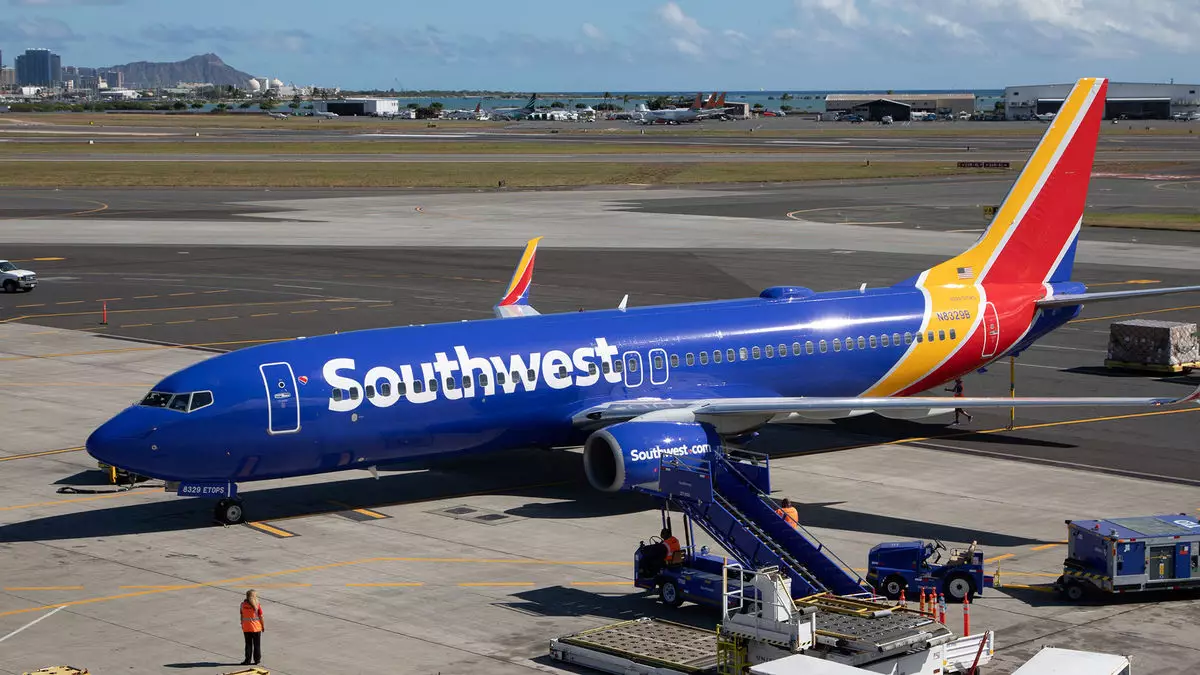Southwest Airlines, known for its low-cost, common-sense approach to air travel, is making a bold move by introducing its first premium seats. CEO Bob Jordan has reassured customers that despite these changes, the airline will not lose its identity as a budget-friendly carrier.
The airline recently announced plans to add extra-legroom seats to its planes and phase out its signature open-seating policy. This move is aimed at narrowing the profit-margin gap between Southwest and its competitors, such as Delta and United. While Southwest has been successful in maintaining a pre-tax margin of 6.4%, it lags behind its rivals in terms of premium offerings.
Jordan emphasized that the new extra-legroom seats will not come with any added frills. The seats will be indistinguishable from the standard coach seats, ensuring that Southwest’s straightforward approach to air travel remains intact. With plans to assign seats for the first time, Southwest aims to provide a more seamless and stress-free experience for its passengers.
The decision to introduce premium seats is driven by the evolving landscape of the airline industry. Revenue growth in premium cabins and paid seats has outpaced the economy class since the onset of the pandemic. By adapting to these changes, Southwest is positioning itself to remain competitive and meet the evolving demands of travelers.
Southwest plans to roll out the new extra-legroom product in conjunction with seats developed by Recaro. While the timeline for the launch is still uncertain, the airline is committed to ensuring a smooth transition for passengers. Retrofitting existing aircraft and developing a new boarding process are among the key areas of focus for Southwest’s leadership team.
Assigned seating is expected to alleviate the stress and uncertainty that passengers currently experience during the boarding process. By offering a more structured approach to seat assignments, Southwest aims to provide a sense of reliability and consistency for its customers. The goal is to maintain the relaxed and friendly atmosphere that Southwest is known for while improving operational efficiency.
Despite the challenges posed by the pandemic, Southwest reported a revenue increase of 4.7% for the second quarter, exceeding analyst estimates. The airline’s net income of $367 million demonstrates its resilience and ability to adapt to changing market conditions. By investing in new seating configurations and enhancing the overall passenger experience, Southwest is poised for continued growth and success in the future.
Southwest Airlines’ decision to introduce premium seats while maintaining its low-cost identity reflects a strategic approach to meeting the evolving needs of the airline industry. By balancing customer experience, operational efficiency, and financial performance, Southwest is positioning itself for long-term success and sustainability in a rapidly changing market.

